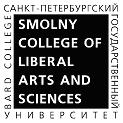
Budapest, '56 and Beyond. History and Memory of the 1st Crisis of Communism.
International Conference
September 28-29, 2006
St. Petersburg, Russia
Goals and Objectives of the Conference
The year 2006 marks the 50th anniversary of the tragic events of 1956 in
Hungary. Despite the passing of half a century, the historical memory of the
Soviet past as well as the Budapest uprising in 1956 remains an important and
topical issue for scholars - and not only for those who come from the countries of
the former Eastern Bloc. Unfortunately, the trend toward historical amnesia
concerning the totalitarian aspects of the Soviet past in contemporary Russian
national consciousness has had a negative influence on relations between Russia
and the countries of Central and Eastern Europe. Many in those states still
harbor some resentment toward Russia as the successor of the Soviet Union. Thus,
it is the task of intellectuals, above all Russian intellectuals, to take the
initiative of reinterpreting the past in order to overcome the resentment, which
blocks the understanding of the present situation.
Within the framework of its scholarly and teaching activities, Smolny College
of Liberal Arts and Sciences has been revisiting this subject. Thus, in 2001, a
conference "Responsibility of Intellectuals: Arts, Ideology, Memory in the 20th
Century" was held - a conference about the influence of temptations facing
totalitarian regimes. We have paid special attention to those subjects in our
teaching as well, both in the context of history and modern historical memory.
Some of the courses recently taught at Smolny include: "To Live under Communism,"
"Soviet Music as a Cultural-Historical Phenomenon," "Modernism and Conservatism
in German Art in the 1930-50s: The Third Reich and Adenauer&apss Germany," and "Why
Do I Hate You: Nationalism in Central and Eastern Europe."
Conference Structure
The conference will last two days and will consist of three main parts.
A keynote address by a participant of the uprising shall launch the
conference.
In the first part we shall conduct a general analysis of the events after
Stalin&apss death in order to understand what consequences it had for the internal
situation in the USSR and in the other countries of the socialist bloc. A wide
scope of issues will be examined: the Berlin crisis of 1953, Nikita Khrushchev&apss
secret speech, the perception of the speech in the West, and its influence upon
the international communist movement.
The second part will be devoted to the Hungarian uprising of 1956, as well as
the so-called "Events of Pozna??" in Poland that same year. We shall pay special
attention to the chronology of events, the testimonies of the contemporaries,
the reactions of the world community, the USSR, and other socialist countries,
and the measures that followed the suppression of the uprising.
Finally, in the third part we would like to discuss the role of the issues
above in historical memory and analyze the perception of the Hungarian events in
Central and Eastern European countries in the present. We would also like to
discuss how contemporary historiography addresses 56 and what we think about its
role in the history of the short twentieth century. Finally, a comparison of
historical memories about the Soviet past in modern Russian society and in
former socialist countries should open new research agendas and create a ground
for future dialogue and understanding.
Since, as is our custom, we want this to be an event not just for a narrow
circle of initiated specialists, but an open event that our students and the
general public could also participate in, we want to go beyond the media of the
spoken word. Thus, the individual presentations and roundtables will be
accompanied by a photo exhibition about the events of 1956 and screenings of
films (both documentaries and feature films) related to the revolution. The 1956
Research Institute, the State Committee for the 50th Anniversary Celebrations of
the 1956 Revolution and the Open Society Archives of Budapest are kindly helping
us with documents.
Conference participants
The conference aims to bring together academics from Hungary, Poland, other
countries, as well as Russian scholars, as presenters and panelists.
Conference materials will be published in a special issue of the journal
"Collegium" published by Smolny College.
Call for proposals
Proposals for short conference papers and presentations relating to the topics
discussed above are welcome.
Please submit the title of your proposal, as well as and biographical
information, by June 15, 2006, in either English or Russian, the working
languages of the conference. Paper proposals may be sent electronically, in the
form of a Word document, or by regular mail to the following address:
Lieutenant Schmidt Embankment 11, St. Petersburg, 199034, Russia.
E-mail: e_fofanova@smolny.org
A limited number of travel and accommodation grants for presenting
participants whose institution does not cover such participation may be
available. If you want to be considered for that, please indicate that in your
letter or e-mail.
For any additional information, please, contact Elena Fofanova, Smolny Collegium
Assistant:
Tel.: +7 (812) 320 68 58
199034, St. Petesburg, Lieutenant Schmidt Emb., 11, T. 7(812)328 17 19, F.
7(812)320 69 49; smolny@icape.nw.ru, www.smolny.org

